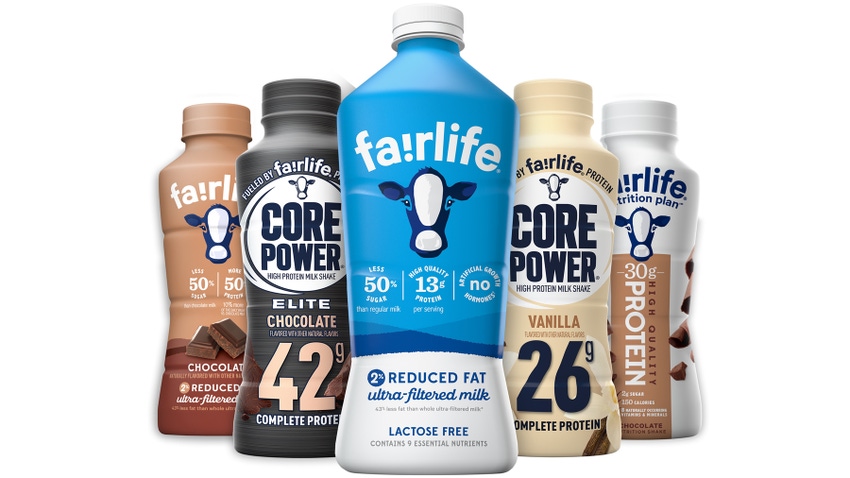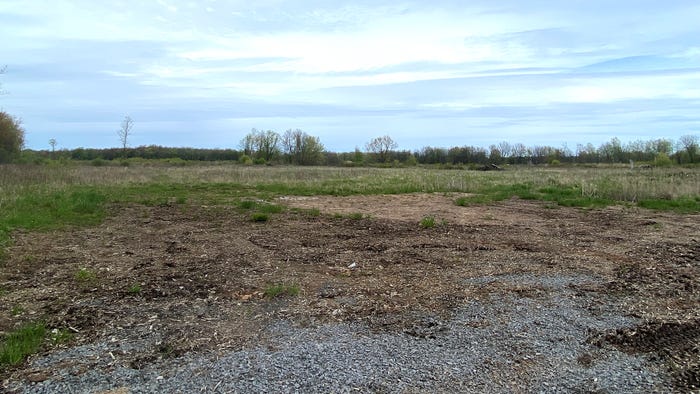
Dairy leaders say Fairlife’s decision to build its newest production facility in New York is a much-needed boost to a region where dairy has been in decline.
New York state recently announced the company was planning to build a 745,000-square-foot production facility near Lake Ontario, with construction beginning as soon as this fall. The press release stated the facility could be completed by late 2025.
Tim Doelman, CEO of Fairlife, said the plant will be the company’s third bottling facility — and fifth manufacturing facility overall — for its ultra-filtered milk, and Core Power and Nutrition Plan products. It will have the capacity to process between 5 million and 7 million pounds of milk per day.
He said the company, which is owned by Coca-Cola, is quickly growing and needed to expand its manufacturing capacity. It considered other sites in Indiana, Ohio and Pennsylvania but ultimately settled on New York, Doelman said, because of its proximity to markets, highly skilled workforce and strong dairy heritage.
The state is also kicking in $21 million to the estimated $650 million project through its Excelsior Jobs Tax Credit Program in exchange for the company’s commitment to produce 250 jobs. And Monroe County, where the plant will be located, is expected to apply for a $20 million grant to provide power and related infrastructure to the site.
Boost for dairy
The announcement of a new processor is a much-needed boost for regional dairy, industry leaders say.
“We have really needed additional processing,” said Tonya Van Slyke, executive director of the Northeast Dairy Producers Association. “I believe that Fairlife coming to New York will give our farmers the energy they need to look toward their future and think about their future in New York. We desperately needed this.”
Dave Smith, executive director of Pennsylvania Dairymen’s Association, said the entire region will likely benefit from the new plant.
“It’s a big win for dairy in the Northeast. While it would have been great to have the Fairlife processing plant in Pennsylvania, it’s a huge win to add a new regional milk processor,” Smith said. “We recognize that any new processing capacity added in the Northeast will continue to draw milk from surrounding areas, and the Pennsylvania dairy industry will continue to help fill the supply of milk. Milk moves all throughout the Northeast, and production and processing in New York and Pennsylvania are needed to meet the demand of milk for the whole northeastern portion of the United States.”

PLANT SITE: The site of the future Fairlife production facility in New York is in Monroe County in the northwest part of the state, near Lake Ontario.
Doelman said the company prefers to get its milk through cooperatives, although he didn’t say what cooperative would be contracted to supply milk for the new plant.
Chris Wolf, professor of agricultural economics at Cornell, said the region — and especially New York — has been dealing with excess milk production for some time without adding significant processor capacity.
“New York dairy farms are very efficient and productive, and added capacity signals that the state can be a viable option for growth and innovation,” Wolf said. “Growing farm-level milk production requires adding capacity, and the Northeast has probably fallen behind in recent years in that respect. The proximity to major Eastern cities, as well as ability to increase milk production, should make the region attractive for investment.”
Struggles persist
The announcement by Fairlife comes against the backdrop of an industry that has had to adjust quickly to changes not only in consumer consumption, but also in regulations.
Milk in the Northeast has historically gone for fluid consumption, but overall fluid consumption has been on the decline for many years. In fact, fluid milk consumption in 2021 — 44.5 billion pounds — dropped 4% from the previous year, the biggest one-year drop in history, according to a Sept. 12, 2022, article in Hoards Dairyman.
Per-capita fluid milk consumption — the amount of milk a person drinks on an annual basis — has been cut in half since 1955, according to the article.
New York dropped to fifth in overall dairy production in 2022, surpassed by Texas, and Pennsylvania now ranks eighth overall. Both states lost more than 200 dairy herds in 2022, according to a recent Dairy Outlook column by Fran O’Leary.
Labor is another big issue. Earlier this year, New York state adopted a new farmer overtime rule that lowers the farmer overtime pay threshold from 60 hours a week to 40 hours a week. Starting Jan. 1, the overtime pay threshold will be set at 56 hours and will then decrease by four hours every other year until reaching 40 hours in 2032.
Dairy farmers spoke out in numerous public hearings against the overtime rule, stating that it would put them at a competitive disadvantage and would make the already tight labor pool even tighter.
Lauren Williams, associate director of public policy for New York Farm Bureau, said state leaders need to be more aware of regulatory impacts on the dairy industry if it wants it to grow.
The fact that Fairlife decided to build its newest plant in New York is evidence that the company thinks the dairy industry can thrive here, she said.
Doelman said the fluid segment is ripe for growth and was a big reason Coca-Cola bought out Fairlife in 2020.
“We looked at the space and believed milk was a great product,” he said. “It was a question of, how do you make it more interesting and compelling to the consumer?”
“We think the category has all kinds of opportunities for growth,” Doelman added.
Read more about:
ProcessingAbout the Author(s)
You May Also Like






